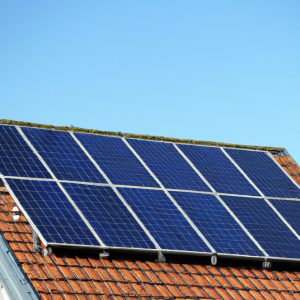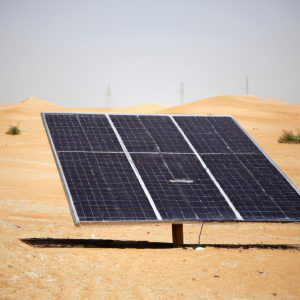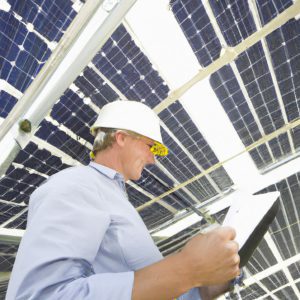
What are the benefits of new and solar energy? Home panel installation guide
New and solar energy has many environmental, economic and social benefits. Below are some of the main benefits of this type of energy:

1. Being clean:
Solar and new energy are clean and renewable sources. In contrast to the fossil fuels used in traditional energy production, they do not introduce any greenhouse gases, air pollutants or harmful particles into the atmosphere. This helps to maintain air quality and reduce the effects of climate change.
2. Reducing dependence on natural resources:
By using solar and new energy, dependence on fossil fuels such as oil and natural gas is reduced. Being able to use renewable sources for energy production helps us to be more limited in the consumption of natural resources and to use more diverse options for our energy needs.
3. Creating jobs and economic growth:
The solar and new energy industry creates new jobs and economic growth. This industry needs designers, installers, technicians and workers who are engaged in the development, installation and maintenance of solar and new energy systems. The creation of these jobs and the growth of the related industry will create employment and income opportunities for young people and increase the economy of the region.
4. Reducing energy costs:
Also, the use of solar and renewable energy can lead to lower energy costs for homes and businesses. Due to the advancement of technology in the field of solar cells and storage systems, the costs of installing and operating solar systems have decreased significantly.
5. Energy independence:
The use of solar and new energy can complete this part because it is not possible due to the sudden interruption of the electricity connection. But in short, the use of new and solar energy can lead to energy independence, reducing air pollution, preserving natural resources, reducing energy costs, and creating job opportunities and economic growth.
How can I use solar energy in my home?
Using solar energy in your home can help you generate energy independently from the public grid and reduce your energy consumption. Below are some tips for using solar energy at home:
Installation of solar panels:
Installing solar panels or solar cells on the roof of your house can allow you to generate solar electricity to meet part of your home’s energy needs. These panels convert sunlight into electrical energy and provide it for home use. By installing battery storage systems, you can use the generated energy at times when you need it less.
Use of solar heating:
Another way to use solar energy at home is to use solar heating systems. In these systems, solar energy is used to heat water. This water can then be used for bathing, home heating and other heating needs. Installing a hot water storage tank along with a solar heating system can help you use solar energy to meet your home’s heating needs.
Use of solar lighting:
One of the simpler ways to use solar energy at home is to use solar lighting. You can replace the lamps and lights in your home with solar lamps or solar lighting fixtures. These lamps are charged by the sun during the day and used as a light source at night. This method can help reduce electricity consumption and lighting costs.
Use of portable solar devices:
Portable solar devices such as similar flux, pointing amplifiers and optical amplifiers can be used to amplify optical signals in communication networks and for use in optical data transmission systems. These devices are formed by transistors, optical fibers and other optical elements.
Signal Amplifiers:
Signal amplifiers are commonly used to amplify and amplify electrical signals that are transmitted over cables or telecommunication paths. These amplifiers amplify weak signals and transmit them to greater distances and with better quality.
Optical Amplifiers:
Optical amplifiers are used to amplify optical signals in optical fibers. These devices amplify the information through the optical signals and act as a “pump” to amplify the optical signals along the fiber optic path. Optical amplifiers are especially used in long-haul and long-distance communication networks such as fiber optic networks.
Signal amplifiers and optical amplifiers can use different technologies such as semiconductor transistors, optical aftereffect (EDFA), Raman amplifiers and heavy optical amplifiers (SOA). Each of these technologies and devices has its own characteristics and applications.

How can I calculate the cost of installing solar panels?
To calculate the cost of installing solar panels, you should pay attention to the following factors:
1. energy consumption:
First, you need to calculate your energy consumption at home in kilowatt-hours (kWh) per year. This information can usually be found on your bill or utility bill.
2. Need for solar panels:
Next, you need to estimate how much of your energy consumption you want to provide with solar panels. This amount can be determined based on your estimate of the amount of solar energy production in your area and your energy needs throughout the year.
3. Purpose of the system:
You need to decide if you want to make your solar system a full source of your energy or if you want to use it as a supplemental source. If you want to completely disconnect from the public grid, you need a larger and more expensive system.
4. Installation and equipment cost:
The cost of installing solar panels includes the cost of buying and installing panels. Electrical equipment is inverter (to convert solar direct current to alternating current for home use), connection system (such as cables and junction box) and other essentials. The cost of installation will usually vary based on the number and power of the panels, system specifications and the specific needs of your home.
5. Related costs:
Other costs such as licenses and permits for installation, technical inspections, maintenance and after-sales service should also be considered.
Once you’ve gathered this information, it’s best to contact local solar panel installation companies and check the exact installation costs for your home. They can provide an accurate estimate based on your specific needs and circumstances. Also, part of the costs may be covered by the government or related organizations under the title of financial facilities or discounts. Therefore, it is better to talk about this issue with the relevant authorities in your area.

Finally, note that solar panel installation costs may vary based on location, system size, and other factors. Therefore, the best way to calculate costs is professional advice and estimates from companies specializing in solar panel installation. That’s why Iran Solars (Hoshmand Perto Tuan) is by your side to make this easy for you.
